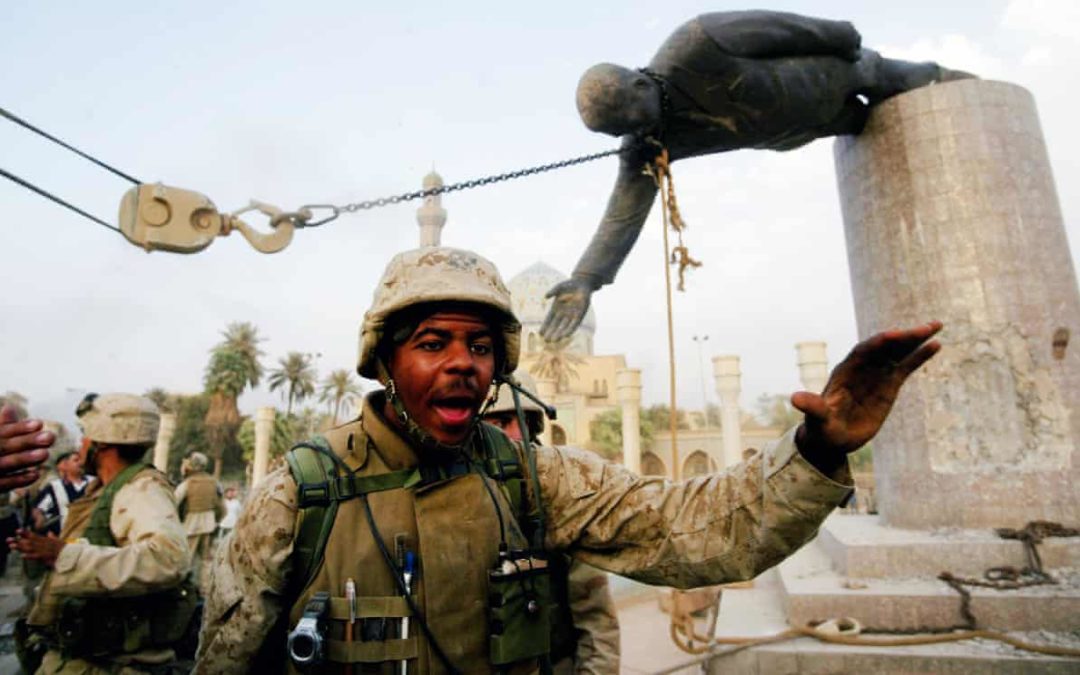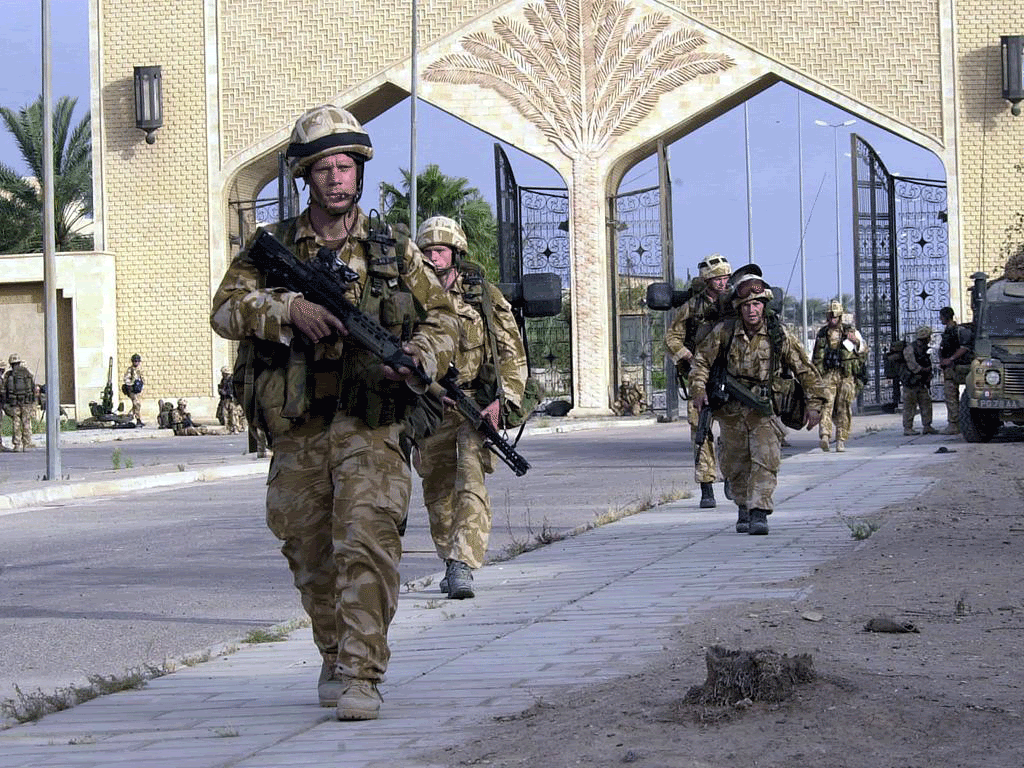Paul Musgrave has written an important piece discussing how ideas developed within academia can have profoundly negative effects when they escape into the wild of the policymaking world. For someone like me who has been involved for many years in...


Paul Musgrave has written an important piece discussing how ideas developed within academia can have profoundly negative effects when they escape into the wild of the policymaking world. For someone like me who has been involved for many years in...

That one can pose a rational model that predicts preventive war does not make it the right model or necessarily do justice to the facts of the case.

Editor's Note: This is a guest post by Alexandre Debs and Nuno P. Monteiro, both of Yale University. In it, they discuss the causes of the Iraq War, a subject of some recent discussion at...
Editor’s Note: This is a guest post by Elizabeth Saunders who is an Assistant Professor of Political Science at George Washington University. In this year of Iraq-related anniversaries, this summer...
This morning, the McConnell Center at the University of Louisville hosted CIA Director David H. Petraeus. The event was not publicized and required a ticket for admission. As chair of the Political Science Department, I was invited to hear the talk -- and had a seat very near the front and center of the stage, less than 25 feet from the speakers. Unfortunately, very few students outside of the (approximately 40) McConnell Scholars were invited to the event.The lecture hall was instead filled with older guests, including many veterans and some active duty servicemen (and women, though I...
This week, a number of high-profile journalists and bloggers are engaged in a debate about presidential persuasion. Among other examples, they have been discussing the George W. Bush administration's selling of the Iraq war -- leading political scientists at the The Monkey Cage to weigh in with data and useful analysis.Much of the discussion about the Iraq war centers around this chart, which details the contours of support for the war based on party identification.I left the following in comments, but wanted to add key links:The Bush administration really starting selling war in late August...
Over the past few weeks we’ve had to endure military brass and top government officials falling over themselves to condemn American GIs – first for urinating on dead Afghans, and more recently for beating a sheep. Earlier in the Iraq and Afghan wars, we’ve suffered through pious denunciations of soldiers who tortured prisoners at Abu Ghraib or laughed as they targeted “dead men” with drones.How noble the sentiment! Criticizing ordinary servicemen who do not abide by the rules of engagement or who break the laws of war. In fact, however, most of the official condemnation has ulterior...
Dick Cheney's memoir apparently verifies an interesting political point from George W. Bush's memoir. Last November, I noted that the former President claimed that Senator Mitch McConnell (R-KY) had approached him in 2006 prior to the congressional elections in order to urge withdrawal of some US troops from Iraq. This might save the Republican majority, argued the Majority Leader, even though McConnell was publicly taking the position that the US should remain in Iraq for vital security reasons. After the election, of course, Bush famously increased the US deployment in Iraq ("the surge").A...

The killing of Osama bin Laden allows political leaders to further disentangle Iraq, Afghanistan and the whole war on terror concept; to wind down some operations and refocus others; to bring some stories to light and push others aside, to be forgotten. But how do those who served in these wars feel about this? In today’s New York Times Captain Shannon P. Meehan, a US veteran of the 2003 Iraq War, published a powerful statement of alienation on this matter. Meehan felt no closure on hearing of bin Laden’s death. It only brought a sense of distance and disconnection. It reminded him he had...
I have already posted at the Duck and also at my blog on the spat between Tom Ricks and Peter Feaver. Today, Feaver responded to Ricks. I don't want to get into the he said/he said debate. I just want to raise one point and then develop it a bit:Feaver is not really doing social science here. He is seeking to explain why a particular decision happened, but he is missing a huge opportunity to develop a general understanding of Presidential behavior about the deployment of troops. He is only focused on the surge, and his narrative suggests that Bush was making some good, tough decisions...
On CNN this Saturday morning, the day after the United Nations Security Council voted for Resolution 1973 (2011) to authorize a "no-fly zone" in Libya, the debate has centered around whether or not the United States and its allies want regime change in Libya. After all, a few days ago President Obama said "It's time for Qaddafi to go." Similarly, British Prime Minister David Cameron has declared: "It is almost impossible to envisage a future for Libya that includes him. Gaddafi must go, he has no legitimacy."Yet, to me, this seems like a very odd and unhelpful framing of the situation....
Back in 2003, the name Ricardo Sanchez appeared in several posts on my personal blog. At the time, the now-retired General was "the top U.S. military official in Iraq." Over the years, Sanchez provided honest and forthright assessments of the Iraq war. Even though I didn't always agree with his analysis of what should be done, I respected his contributions to the political debate. Lately, he's been pushing a "truth commission" for Iraq and I think that the U.S. should pursue something like that to document the course of the Iraq war. Sanchez's evolving views of the Iraq war are worth...